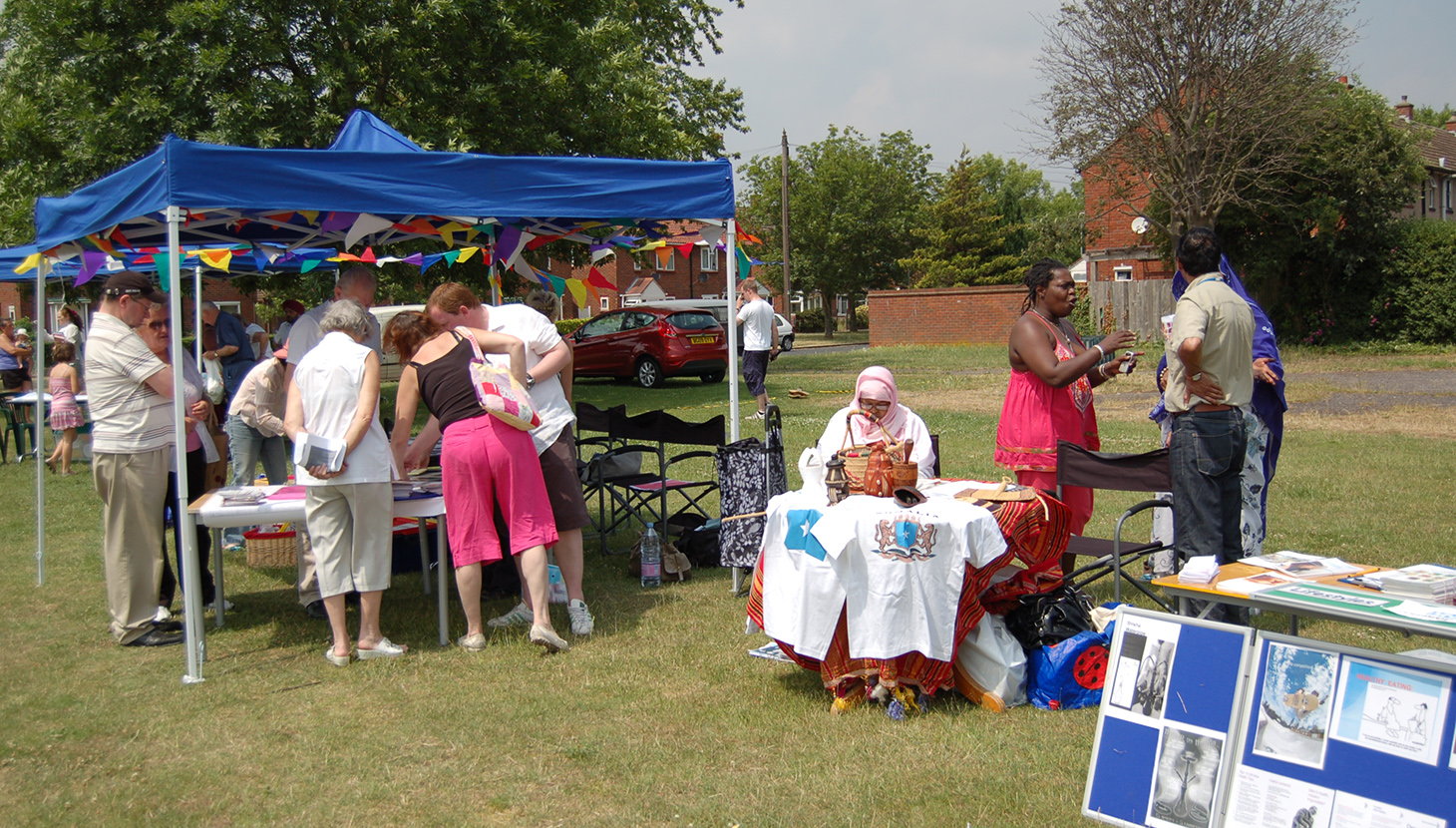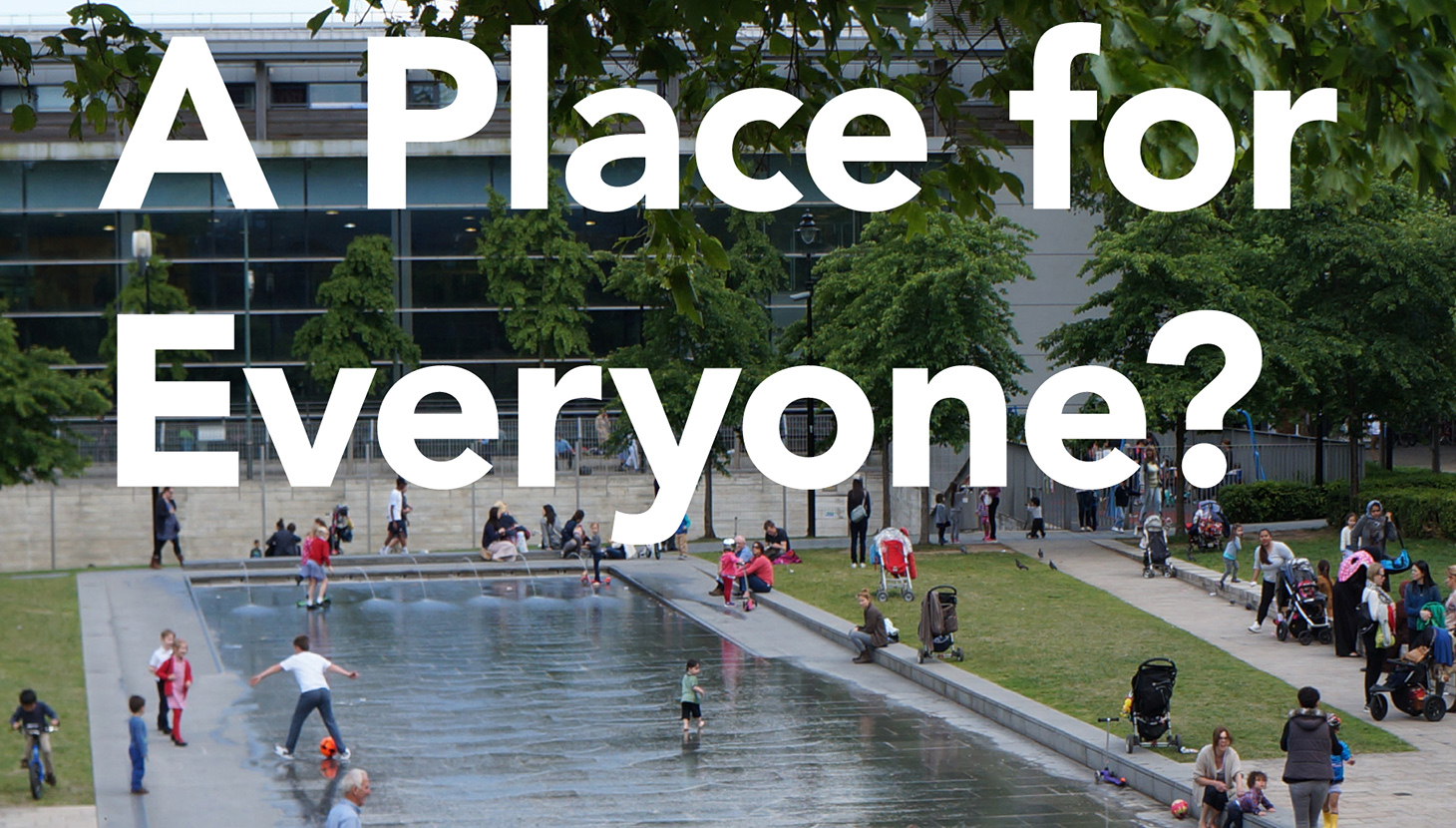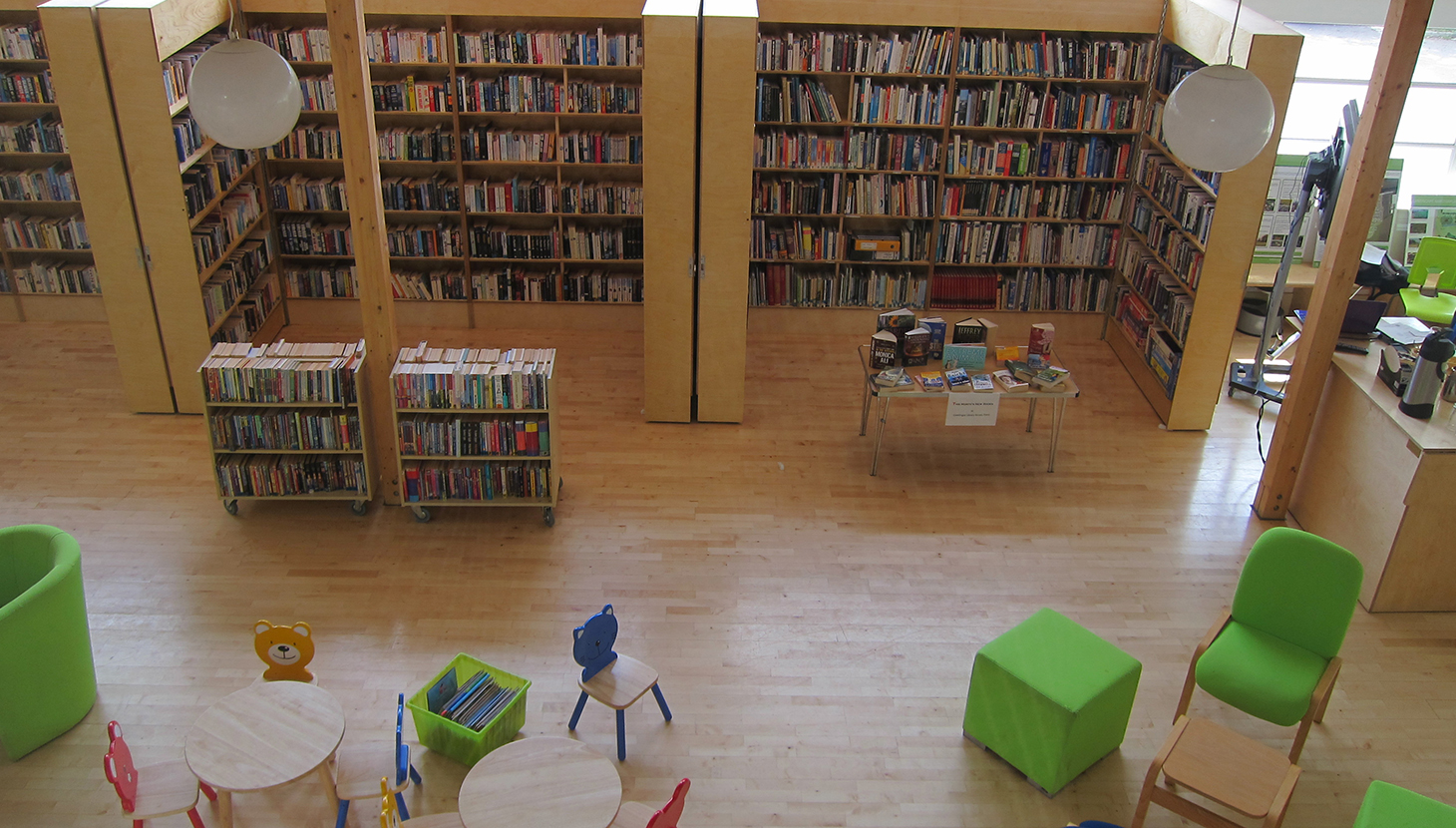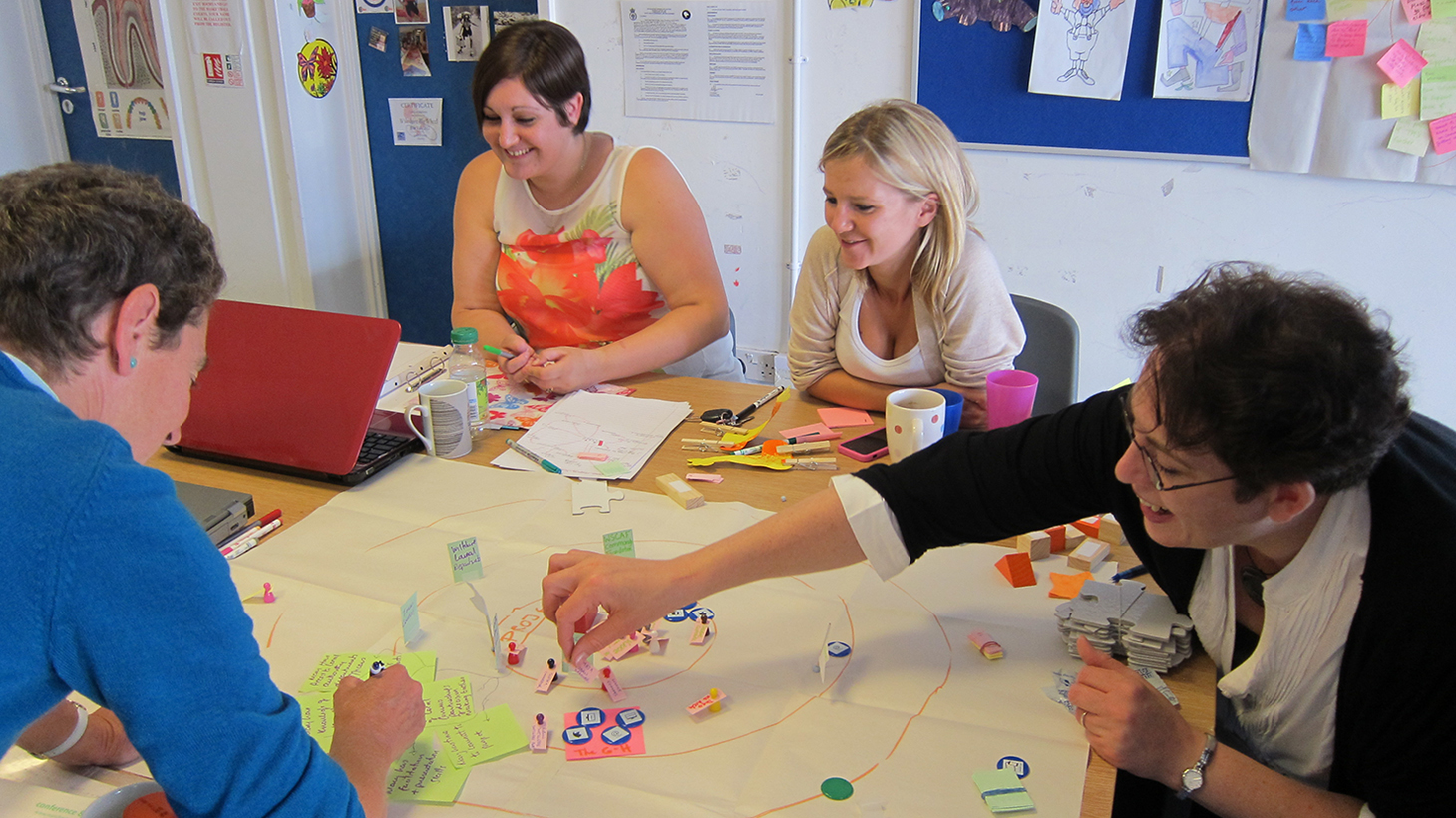Creating shared places is the theme of the 2015/16 Glass-House series. Lucia das Neves explores how the debate is taking shape.
At The Glass-House, one of our key aims is to foster discussion and debate about what is happening in our places – how we innovate their design, how we collaborate to make them work better – as well as celebrating the diversity of voices that can make these things happen. Our annual debate series provides a forum for this discussion and as our last series came to a close in March this year, we were struck by how strongly the theme of the commons – of common place, how we share places, of individual rights and common responsibilities – was an undercurrent wherever we went. And this is how our 2015/16 series, A Place for Everyone? was born.
The commons are a place where we can do together what we cannot do alone and a place to bask in that often-searched-for concept of community. They should necessarily be a place of innovation and creativity – how else can we make the most of the inevitable opportunities and challenges that sharing spaces brings?
To paraphrase our 2015 London speaker, Alastair Donald (British Council’s project director for the British Pavilion at the Venice Architecture Biennale), good design enables people to live how they want to. But we do all want to live in places in different ways, don’t we? Our first debate in this series takes us to Edinburgh and asks Place: designed for everyone?
Our speakers may consider how adaptable design can enable us to live the way we want to with others. We can take inspiration from projects like the Gamlingay Eco Hub in Bedfordshire, which through the personal endeavour of local people took once mono- functional sports facility and made it a local hub serving many different needs, which is celebrated as an award- winning example of environmental excellence. But successful shared spaces might also be as simple as movable benches in a local park.
Sharing spaces creates uncomfortable challenges for inclusive design. How much should the needs of one group take precedence over another? Do our spaces reflect the cultural and generational needs of all their users? If the playground is only designed for up to 12-year-olds, where do the 14-year-olds go to play? What happens if walking my dog makes the park a no-go area for people of a different faith? We must balance our basic needs, what we see as our rights and how we want to live our lives as individuals and communities.
To the mix of rights and needs, we can add the assets and resources that make our places what they are and what they could be. In the context of our second debate city, Manchester, where devolution is and will be the hot topic for some time, Place: the sum of parts? will explore who holds the resources we have in place, who is best placed to mobilise them and how we can orchestrate them to create a great symphony of place.
Traditional resources of capital and land have often been a focus, but our resources in the community, in people and relationships, buildings and spaces, often remain undiscovered. We are demanding that we do more for less as a society and, in that context, what could we achieve if we uncovered and mobilised these assets? Can we afford to ignore them?
The value of community knowledge and energy in making change happen was easily demonstrated by a Glass-House and Open University research project with a group of army families in Tidworth. An asset-based approach, supported by collaboration between the different parties (in this case the local authority, Army Welfare Service and local mums) enabled the community to explore the design of play facilities for children and local families, helped them to identify the assets they could mobilise, build a case for the resources they needed and demonstrate the value they added to their place.
No discussion of assets could ignore the role of digital spaces in place and placemaking. Along with their big data counterparts, these will in many cases mediate an individual’s experience of their physical spaces. What of the role of the many hyperlocal websites and online participation platforms in shaping our places and vice versa?
If we have established our needs and wants and the resources we have to deliver and animate them, who is responsible for making things happen? We will arrive in Nottingham in February next year, to ask Place: a shared responsibility?
The Glass-House archives are full of stories of communities and people who went out and ‘did something’. Beyond The Glass-House realms, if you have ever heard Pam Warhurst of Incredible Edible Todmorden speak about their projects (and I’d recommend it), you’ll know how much energy and drive it takes to make things happen, but you’ll also see quite clearly how powerful taking action is. We must surely accept that with rights come responsibilities – if we want change, we must necessarily work for it.
At the other end of the scale, anyone who has worked with developers and housing providers, as we have, knows the headaches and delays a lack of trust can cause to projects. Could partnership and collaboration upfront create a more lasting legacy for communities and places?
We think so, but the barriers sometimes feel insurmountable. In addition to mutual suspicion, we must battle other barriers: the time and resources to participate, the confidence to join in, not to mention the knowledge and skills needed to engage in these often complex processes. These factors make achieving contributions from a range of the population challenging. It seems that even when so many studies suggest there are great health and social benefits to participation, that even when those of us who have worked on these projects have seen how places can be different – better – it still feels that making the most of our assets, enabling people to take responsibility is still too difficult in too many cases.
Lastly, we come to our final debate in London in March 2016, Place: who belongs here? Surely one of the things that determine whether we feel responsible for what goes on in a place is a sense of belonging. As individuals and communities, we are affected by our places – by their dynamics, their conflicts and their emotional connections, or absence of connection. Small things can make you feel like you belong – knowing your local shopkeeper, your children being at a local school or the history you have in a place.
Many among you, however, must have experienced visiting a place and feeling like you didn’t belong. That you were ‘other’ to its community. What is the role of placemaking and placemakers in these emotional responses we have to our places? If good design helps us live the way we want, the way we need to, perhaps belonging is one measure of its success.
We hope to explore these questions and uncover a diversity of opinions, experiences and stories in our debate series, into which we invite speakers, contributors and audience members from across the realm of our lived experience of place – placemakers, leaders, managers, residents and more. Join us and share your views.
Lucia das Neves is marketing and events manager at The Glass-House Community Led Design
More about the Debate Series
In partnership with the Open University and The Academy of Urbanism, The Glass-House Debate Series 2015/16 explores how we design and shape our environment today to create a place for everyone and what that means for concepts like shared assets and common good, alongside individual aspirations, ownership, diversity and, rights and responsibilities. Join us in Edinburgh (21 October 2015), Manchester (11 November 2015), Nottingham (3 February 2016) and London (9 March 2016).



